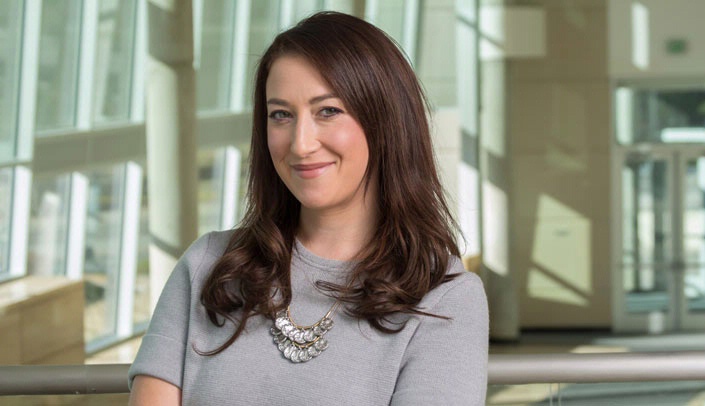Jennifer Yalof, Psy.D., serves as UNMC’s new wellness coordinator. In her role, she will help coordinate wellness activities and deliver proactive stress management education to students and residents in all UNMC colleges. As a faculty member, she will assist UNMC in making wellness activities part of the curriculum.
Learn more from Dr. Yalof in her own words:
Although I’ve only been here a short while, I’ve heard from so many people who are dedicated to improving the overall wellness of individuals on campus. The upcoming symposium, “Elevating the Conversation: Stress and Emotional Well-Being,” and the creation of my position, is evidence that improving wellness isn’t just talk. The chancellor supports the need to minimize provider burnout by educating the UNMC community, and we have wonderful resources, such as the Counseling and Student Development Center run by Dr. David Carver, and the Faculty Employee Assistance Program.
There is a need
Symptoms of burnout can resemble symptoms of a major depressive episode, and are to be taken seriously. There are many changes going on in health care, across the country and right here on our campus, and change can be stressful. The symposium will be an excellent forum to discuss these issues, how they impact providers and what we can do to help everyone in our community.
What is a wellness coordinator?
Part of my role is to elevate and sustain the conversation around well-being, which, to me, encompasses a combination of factors including physical and emotional health, proper work-life balance, and attending to one’s social and spiritual needs.
As a faculty member, I am going to focus on self-care (i.e., the actions someone takes to promote their overall well-being), disseminate information and encourage respectful discussion. For example, I will be part of the M4 year elective on student wellness that was developed collaboratively by Drs. Brent Khan and Steven Wengel. I hope to provide a safe place for individuals to discuss a variety of salient issues. I will not offer therapy, or provide consultation for specific individuals, but can direct people to existing resources.
One size does not fit all
There are many reasons why someone may not seek out self-care resources. Cultural factors, including race, ethnicity and socio-economic status, play a major role. Time, or lack of it, also is an issue. There is not a “one size fits all” solution, so my job is to help people find out what works for them, and what is manageable.
It’s the right thing to do
Taking care of oneself is not always easy, even for those in helping professions. But taking care of yourself and your needs isn’t selfish. It’s important, and necessary.
